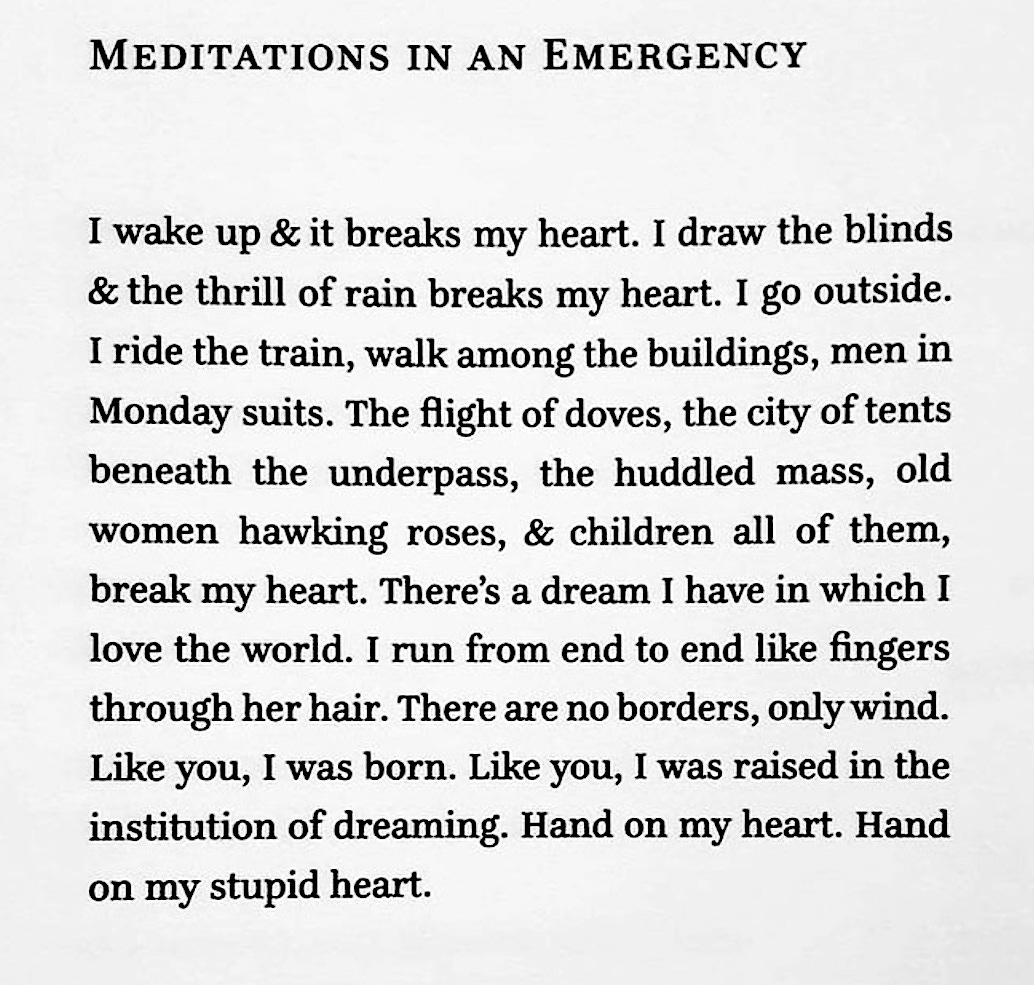Hi friends,
It’s been a while. Here are some things that have offered me direction over the past few days, shared in the hope that some might resonate with others:
Eight years ago, Sarah Kendzior wrote about how to be your own light in the age of Trump, and the crucial importance of nailing down your values. “I need you to fight, too, in the way that matters most, which is inside. Authoritarianism is not merely a matter of state control, it is something that eats away at who you are. It makes you afraid, and fear can make you cruel. It compels you to conform and to comply and accept things that you would never accept, to do things you never thought you would do.”
Related, I’ve been thinking about Timothy Snyder’s On Tyranny. His first lesson is: “Do Not Obey in Advance.” He talks about this in more detail in a video on his substack and has written about it on Lithub.
I’m re-reading Natalia Ginzburg’s The Little Virtues. The other morning, I read “Son of Man,” which is about the destruction of war. “Once the experience of evil has been endured it is never forgotten. Someone who has seen a house collapse knows only too clearly what frail things little vases of flowers and pictures and white walls are.” After finishing the essay, I unwisely picked up my phone, and saw an IDF spokesperson had said residents of northern Gaza would not be allowed to return home. The Guardian notes that this “appears to be the first official acknowledgment from Israel it is systematically removing Palestinians from the area.” A reminder that Jewish Voice for Peace has compiled information to help you tell congress to stop arming Israel.
A quote from Octavia Butler has been making the rounds on social media. In the quote, Butler has just been asked what the solution is to the many problems of the world. She responds: there isn’t one. “[T]here’s no single answer that will solve all of our future problems,” she explains, “There’s no magic bullet. Instead there are thousands of answers — at least. You can be one of them if you choose to be.”
From Rebecca Solnit’s Hope in the Dark: “Every act of resistance, no matter how small, builds toward a greater movement. And when we come together, there's nothing we can't change." One powerful act of resistence is building relationships. If you’re looking for a way to respond, find a way to connect with people. This could mean joining mass calls, grassroots organizing, providing meals, building a pod, forging new friendships, or just talking to your neighbors.
Maria Popova of The Marginalian wrote about Hannah Arendt, defiant goodwill, and changing the world. “The smallest act in the most limited circumstances,” Arendt writes, “bears the seed of… boundlessness, because one deed, and sometimes one word, suffices to change every constellation.”
I love Cameron Awkward-Rich’s poem “Meditations in an Emergency,” at the top of this post. Another, longer, poem I’ve been turning to is Aracelis Girmay’s “You Are Who I Love.” It’s one of my very favorite poems. Here’s how it starts:
You Are Who I Love
You, selling roses out of a silver grocery cart
You, in the park, feeding the pigeons
You cheering for the bees
You with cats in your voice in the morning, feeding cats
You protecting the river You are who I love
delivering babies, nursing the sick
You with henna on your feet and a gold star in your nose
You taking your medicine, reading the magazines
You looking into the faces of young people as they pass, smiling and saying, Alright! which, they know it, means I see you, Family. I love you. Keep on.
You dancing in the kitchen, on the sidewalk, in the subway waiting for the train because Stevie Wonder, Héctor Lavoe, La Lupe
You stirring the pot of beans, you, washing your father’s feet
You are who I love, you
reciting Darwish, then June
[…]
- Aracelis Girmay “You Are Who I Love”
Take care. We’re going to need each other.
Kate




